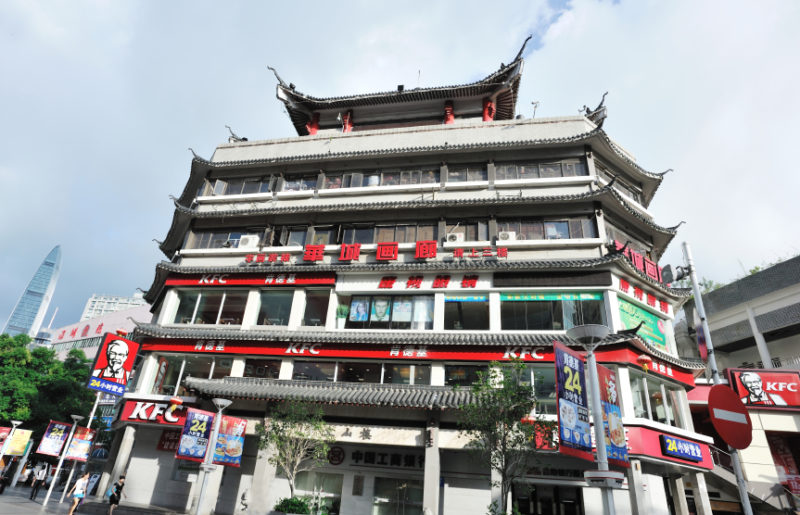
Yum! Brands, which operates the brands Taco Bell, KFC, Pizza Hut, and WingStreet, has filed a lawsuit in China that is attracting headlines. There are several reasons why. First, it isn’t every day that a major U.S. brand files a lawsuit in China. The case itself is even more unusual. Yum! is suing three Chinese communications companies because of a social media campaign it views as defamatory. The campaign cast aspersions on the quality of KFC’s ingredients. One popular post, illustrated with photoshopped images, claims that KFC’s chickens have eight legs and six wings.
Chinese Government Allows Suit to go to Court
Unlike the U.S., which protects freedom of speech online through the Communications Decency Act, or Europe, which with its “Right to be Forgotten” law has established itself as an advocate of privacy online, the Chinese government actively censors online content. It also has a reputation for favoring domestic businesses. Nonetheless, the Chinese government has allowed Yum!’s lawsuit to go to court. As this recent Wall Street Journal article noted, “KFC cited the Chinese government’s intensified campaign to clean up what it deems rumors on social media. It is very hard for companies to protect their reputation on the Internet, KFC said.”
Yum! was one of the first major American food brands to enter China. It now operates almost 7,000 restaurants in the country, and its China operations account for half of Yum!’s sales. So Yum! has been successful in building longstanding relationship with Chinese consumers. But like many derogatory online reputation campaigns, this one was founded on well-documented facts: Yum! has suffered food safety issues for years in China. For instance a government report found KFC’s chicken had unsafe levels of antibiotics. Yum! Brands lost $4.4 billion in market value after the ensuing publicity. Several similar incidents have contributed to Yum!’s reputation and profit fallout, and a general wariness among Chinese customers about dining at KFC restaurants.
WSJ “Crisis of the Week” Addresses Situation
Since 2009, the business media has been full of stories about this situation. Today’s edition of the Wall Street Journal’s “Crisis of the Week” column features crisis and reputation experts assessing how well Yum! has handled the issue. My view, excerpted below, is that a lawsuit was the wrong move.
“Yum! is right to address this issue aggressively, but a lawsuit won’t help its public image. The company should immediately launch a humorous and pervasive social media campaign on WeChat–imagine brightly animated gifs and longer-form cartoons showing hundreds of eight-legged chickens bursting through the doors and windows of KFC restaurants. “….WeChat will be an excellent platform to launch this campaign (the app has over 600 million registered users). Concurrently with this likable campaign highlighting the absurdity of the attacks, Yum! should launch a more widespread and long-term informational campaign explaining their safety and quality-control practices. With careful execution, Yum! can capitalize on the attention now focused on their products. “Yum! has already laid the groundwork for such a campaign. Its Chinese website states that if KFC had been able to create an eight-legged chicken, it would be in the running for a Nobel Prize. Currently Yum! Brands has a social media problem. But it is not too late for to turn this crisis into a golden moment for the KFC brand in China.”
Yum!’s Lawsuit the Wrong Move
A lawsuit was the wrong move for several reasons. One is the common warning against “feeding the trolls.” Engaging with harassing or inflammatory commenters on the Internet is a no-win game. It both legitimizes and encourages them. More importantly, social media—where the crisis began—is an incredibly effective tool for engaging your audiences directly to turn a crisis around. A lawsuit in no way addresses the reputation capital Yum! has lost, and by focusing on litigation, the company is missing a great opportunity.
What to Know
If you are a CEO, crisis manager or risk executive at a company facing a similar situation, Gabriella Coleman’s 2014 book Hacker, Hoaxer, Whistleblower, Spy: The Many Faces of Anonymous provides invaluable insight into the trolling culture – including the disruptive tactics such groups implement against large organizations. If your organization is active in China or planning to be, China’s Super Consumers: What 1 Billion Customers Want and How to Sell it to Them, by Savio Chan and Michael Zakkour, will help you understand China’s culture and how to build relationships with Chinese consumers. The book also provides essential background on the importance of social media (and WeChat) to Chinese consumers.


